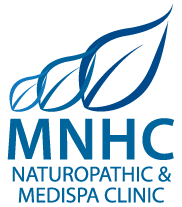An allergy, or hypersensitivity reaction, occurs when the body’s immune system overreacts to a substance that is normally harmless (allergen), such as mold, pollen, animal dander or dust mites.The white blood cells of an allergic individual produce an antibody called immunoglobulin E (IgE), which attaches to the allergen. This triggers the release of histamine and other inflammatory chemicals that cause allergic symptoms, such as runny nose, watery eyes and hives.
If the allergen is airborne, the allergic reaction will primarily affect the eyes, nose and lungs. If the allergen is ingested, the allergic reaction will primarily affect the mouth, stomach and intestines. If enough inflammatory chemicals are released, a reaction such as hives or rash could occur throughout the body. The most severe allergic reaction, known as anaphylaxis, can lead to low blood pressure, breathing difficulties, shock, and loss of consciousness, all of which can be fatal.
Allergies are extremely common, affecting more than 20% of Americans. The most common allergy triggers include pollen, dust mites, molds, animal dander, latex, foods and insect venom.
Allergy treatment depends on the type of allergy and severity of symptoms. Commonly used allergy medications include antihistamines, nasal sprays, decongestants, leukotriene inhibitors and allergen immunotherapy (allergy shots).
Bromelain may be a useful addition to other therapies used for sinusitis (such as antibiotics) due to its ability to reduce inflammation/swelling. Studies report mixed results, although overall bromelain appears to be beneficial for reducing swelling and improving breathing. Better studies are needed before a firm conclusion can be made. Avoid if allergic to bromelain, pineapple, honeybee, venom, latex, birch pollen, carrots, celery, fennel, cypress pollen, grass pollen, papain, rye flour, wheat flour or other members of the Bromeliaceaefamily. Use cautiously with history of bleeding disorders, stomach ulcers, heart disease, liver disease or kidney disease. Use cautiously before dental or surgical procedures or while driving or operating machinery. Avoid if pregnant or breastfeeding.
Butterbur: Good scientific evidence suggests that butterbur may be effective for allergic rhinitis prevention in susceptible individuals. Comparisons of butterbur to prescription drugs, such as fexofenadine (Allegra) and cetirizine (Zyrtec), have reported similar efficacy. Additional studies are warranted before a firm conclusion can be made. Avoid if allergic or hypersensitive to Petasites hybridus or other plants from the Asteraceae/Compositae family (like ragweed, marigolds, daisies and chrysanthemums). Raw, unprocessed butterbur plant should not be eaten due to the risk of liver or kidney, damage or cancer. Avoid if pregnant or breastfeeding.
Nasal irrigation: Good scientific evidence suggests that nasal irrigation may effectively treat allergies and chronic sinusitis. Well conducted clinical study is needed to make a conclusion in this area. Nasal irrigation is generally well tolerated. Use cautiously with a history of frequent nosebleeds. If the irrigation liquid is hot, the nose may become irritated.
Probiotics: Use of probiotic Enterococcus faecalis bacteria in hypertrophic sinusitis (sinus inflammation) may reduce frequency of relapses and the need for antibiotic therapy. Probiotics are generally considered safe and well tolerated. Avoid if allergic or hypersensitive to probiotics.
Dr. Lorenzo Diana, ND
Doctor of Naturopathic Medicine

